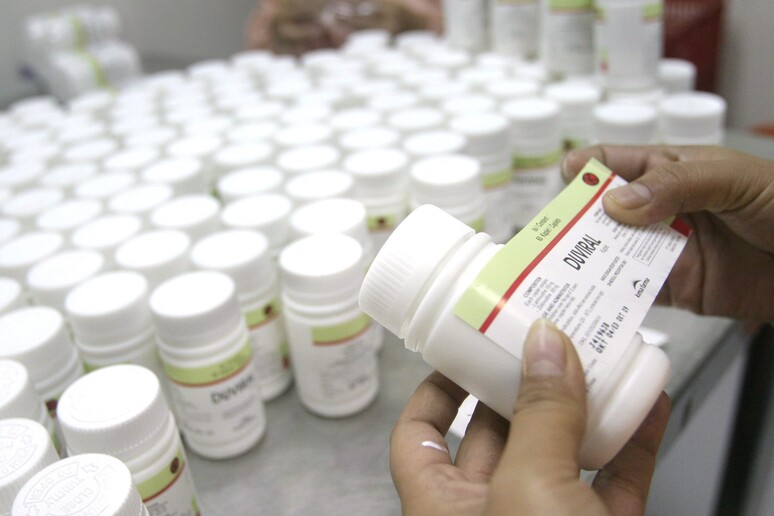Big Data, biology and genomics
have led to understanding how to create a new drug from an old
one.
An algorithm has been used to analyse the molecular
properties of an existing drug used for treat some tumors and
found that it also works against metabolic syndrome.
The research study, published by Nature Communications, was
led by the University of Trento.
It shows how the approach can help 'drug repositioning',
which is a new frontier of pharmacological research that uses
new indications from existing drugs and the application of the
newly identified drugs to the treatment of diseases other than
the drug's intended disease.
"This is an approach that has already been tried in the past
and become a reality thanks to new technologies, which make a
vast, systematic and fast analysis possible and which will
become ever more powerful thanks to the massive amount of data
on the human genome," ANSA was told by Enrico Domenici,
President and Chief Executive Officer at The Microsoft Research
- University of Trento Centre for Computational and Systems
Biology (COSBI).
The center was the one that created the algorithm at the
basis of the research study.
Researchers tested the algorithm to try to fund new
treatments for metabolic syndrome, a pathological condition
characterized by obesity, hyperglycemia, hypertension, elevated
levels of triglycerides and low levels of high-density
lipoprotein cholesterol that increase cardiovascular disease
risk and type 2 diabetes.
"By analysing the data on previous genetic studies conducted
on hundreds of thousands of people," Domenici said, "we
identified the mutant genes responsible for the alterations in
metabolic syndrome."
Then the researchers looked at a pharmaceutical databank to
find the molecules already recorded that are able to interact
with these genes.
They then looked for which drug interacted with the largest
number of genes involved in the condition and among the 1,000
drugs analysed, the most effective was found to be Ibrutinib,
originally used to treat some lymphomas and forma of leukaemia.
The result was later verified in the CIBIO department,
specialised in biology and genomics, on zebrafish larvae.
It was found that the drug managed to "fight against the
inflammation accompanying the accumulation of lipids", said the
head of the department's research unit, Maria Caterina Mione.
"The data are preliminary, since more in-depth study will be
required and then in-depth clinical testing," she said, "but
they show how the method can help drug repurposing a great
deal."
These methods make it possible to shorten the timeline for a
patient since "testing the effectiveness of a drug already on
the market," Mione said, "makes it possible to skip lengthy
steps that are necessary prior to putting a new product on the
market, since tolerance and safety have already been ensured."
ALL RIGHTS RESERVED © Copyright ANSA











